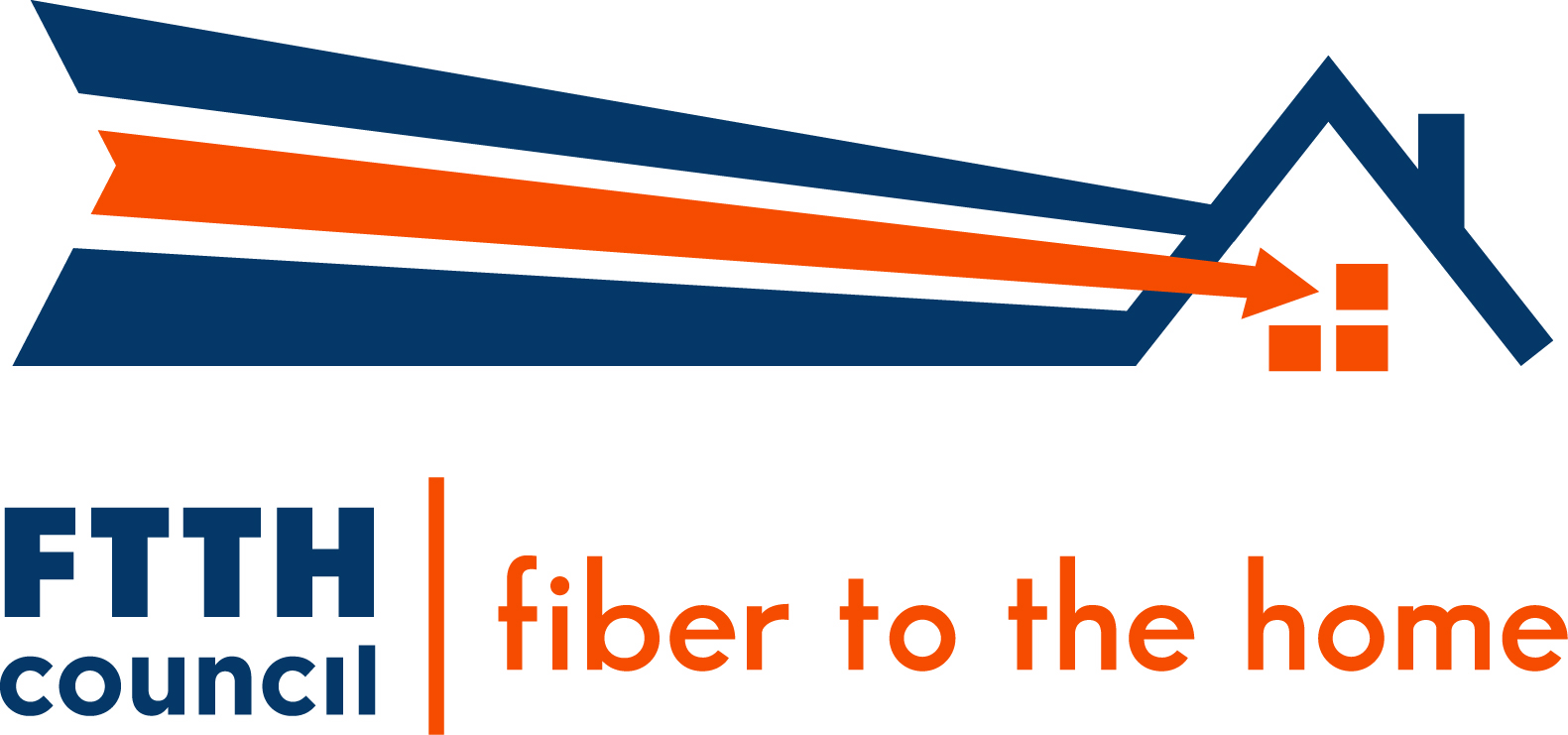Speakers
Confirmed speakers to date: updated 25 March 09
- Jim Baller, President, Baller Herbst Law Group
- Ken Biba, co-Founder and Chief
Technical Officer, Novarum
- Thomas Cohen, Partner, Kelley Drye
- Geoff Daily, Journalist, App-rising.com
- Tim Denton, Commissioner, CRTC (”Canadian FCC”)
- Benoît Felten, Senior Analyst, Yankee Group Europe
- Thomas L. Friedman, foreign-affairs columnist for The New York Times, and noted author of several books
- Sharon Gillett, Commissioner, Dept.
of
Telecommunications and Cable, Commonwealth of Massachusetts
- Dan Gillmor, Director, Knight Center for
Digital Media Entrepreneurship, Arizona State University
- Lev Gonick, Vice President for IT
Services, and CIO at Case Western Reserve University
- Dewayne Hendricks, CEO, Dandin Group Inc.
- Joanne Hovis, President, Columbia Telecommunications
Corporation
- Terry Huval, Director of Lafayette (LA) Utility Systems‘ FTTH project.
- Nathaniel James, Program and Outreach Manager, The Media and Democracy Coalition
- L. Aaron Kaplan, Vienna Austria
- Tim Karr, Campaign Director, Free Press
- Larry Keyes, Microdesign, Telecare
for Home Health
- Sascha Meinrath, Wireless Futures
Program, New America Foundation
- Ellen Miller, Co-Founder, Sunlight Foundation
- Tim Nulty, former Chief Economist, House & Senate Commerce Committees, FTTH activist
- Jon Peha, Chief Technologist, FCC
- Billy Ray, CEO, Glasgow (KY) Electric Power Board
- Andrew Revkin, New York Times science
reporter & blogger
- James Salter, Chairman and Chief
Strategy Officer, Atlantic
Engineering
Group
- Chris Savage, Partner, Telecom & Media, Davis Wright Tremaine
- Bill Schrier, Chief Technology
Officer, City of Seattle
- Derek Slater, Policy Analyst, Google, co-author, Homes With Tails policy paper
- Eva Sollberger, Creator, Stuck in Vermont video blog
- Bill St. Arnaud, Director of Network Projects, CANARIE
- Dirk van der Woude, Program Manager, Municipal Broadband Policy, Amsterdam
- Chris Vein, CIO, City of San Francisco
- Esme Vos, MuniWireless.com
- Herman Wagter, GNA (Citynet Amsterdam)
- Kevin Werbach, Wharton School, University of Pennsylvania
- Timber Wolf, Market Stability Officer,
Cullem, Eaton & Thrive
Speaker Bios
 Jim Baller is president of the Baller Herbst Law Group, a national
law firm based in Washington, DC, and Minneapolis, MN. The firm
specializes in communications and related matters, including
telecommunications, cable television, high-speed data communications,
the Internet, wireless communications, right-of-way management, pole
and conduit attachments, barriers to the public-sector entry into
communications, bankruptcy, privacy, and antitrust. He is also the
founder of the US Broadband Coalition,
a
large and diverse consortium of organizations that are working toward
the development of a comprehensive national broadband strategy. Baller
works regularly with multi-disciplinary teams of experts to assist
local and regional government entities in making comprehensive
telecommunications plans, developing state-of-the-art communications
networks, developing strategic partnerships, and integrating
right-of-way and zoning ordinances.
Jim Baller is president of the Baller Herbst Law Group, a national
law firm based in Washington, DC, and Minneapolis, MN. The firm
specializes in communications and related matters, including
telecommunications, cable television, high-speed data communications,
the Internet, wireless communications, right-of-way management, pole
and conduit attachments, barriers to the public-sector entry into
communications, bankruptcy, privacy, and antitrust. He is also the
founder of the US Broadband Coalition,
a
large and diverse consortium of organizations that are working toward
the development of a comprehensive national broadband strategy. Baller
works regularly with multi-disciplinary teams of experts to assist
local and regional government entities in making comprehensive
telecommunications plans, developing state-of-the-art communications
networks, developing strategic partnerships, and integrating
right-of-way and zoning ordinances.
Ken Biba is a co-Founder and Chief Technical Officer of Novarum, an advisory firm specializing in wireless data networks. Ken has over 30 years experience in the network information systems industry combining a background of general management with a strong product and marketing focus in network systems and information security. Ken was an early engineer of the Internet in 1975. He has co-founded and managed four notable networking companies-Sytek, which was focused on cable TV-based local and metropolitan data networks, Agilis which delivered the first wireless handheld computers, Xircom, which pioneered local area networks for mobile computing, and Vivato, which was focused on scaling Wi-Fi infrastructure to cover campuses and metropolitan areas. Ken’s perspective as CEO, board member of public and private companies, and as a technologist brings unique insight to the business, market and technology of bringing useful wireless solutions to users. Ken has a Bachelor of Science in Physics (Magna Cum Laude, Tau Beta Pi) and a Master of Science in Computer Science from Case Western Reserve University.
 Thomas Cohen is a partner in law firm
Kelley Drye’s Washington, D.C. office. His practice focuses on matters
involving communications, including telecommunications, wireless and
media, the Internet, privacy and government relations.
Thomas Cohen is a partner in law firm
Kelley Drye’s Washington, D.C. office. His practice focuses on matters
involving communications, including telecommunications, wireless and
media, the Internet, privacy and government relations.
Mr. Cohen has more than 30 years of experience in the communications/telecommunications industry sector, first as a government policy maker, serving for over a decade as assistant general counsel for legislation at the Federal Communications Commission (FCC) and as senior counsel for the Senate Commerce Committee. He then was a founder and principal in firms assessing and developing communications/telecommunications properties and advising businesses. At Kelley Drye, Mr. Cohen assists clients with a variety of aspects of communications law, including federal and state administrative and legislative advocacy, business-related legal matters and litigation.
 Geoff Daily is a contributing
editor for StreamingMedia.com, and contributes regularly to EMedia,
EventDV, and EContent magazines, writing about the business of online
video, the future of optical media, the event video industry, and
digital content distribution. He’s also editor of App-Rising.com, a daily blog on the
intersection of broadband networks, applications, and policy. He’s a
big believer in the power of broadband and eagerly engages with fellow
broadband believers, including network operators (especially those
deploying FTTH), applications developers, and community leaders, about
how the use of broadband can revolutionize society.
Geoff Daily is a contributing
editor for StreamingMedia.com, and contributes regularly to EMedia,
EventDV, and EContent magazines, writing about the business of online
video, the future of optical media, the event video industry, and
digital content distribution. He’s also editor of App-Rising.com, a daily blog on the
intersection of broadband networks, applications, and policy. He’s a
big believer in the power of broadband and eagerly engages with fellow
broadband believers, including network operators (especially those
deploying FTTH), applications developers, and community leaders, about
how the use of broadband can revolutionize society.
 Timothy Denton began his term as
Commissioner of the Canadian
Radio-television
and Telecommunications Commission on August 1,
2008. He has broad experience in legal and policy matters in the areas
of telecommunications, broadcasting and the Internet. Most recently,
Denton has been involved in the governance of the domain name industry
through his work with ICANN and as a director of the Canadian Internet
Registration Authority. Between 1996 and 1998, he served as the first
solicitor of the Canadian Association of Internet Providers. As a
policy advisor to the Minister of Communications from 1985 to 1987, he
played a leading role in the creation of the Broadcasting Act and later
contributed to the creation of the Telecommunications Act. He helped
introduce competition in the long-distance telephone market as counsel
to the Canadian Consumers’ Association, and served as Assistant to the
CRTC’s Vice-Chair of Telecommunications between 1978 and 1980.
Timothy Denton began his term as
Commissioner of the Canadian
Radio-television
and Telecommunications Commission on August 1,
2008. He has broad experience in legal and policy matters in the areas
of telecommunications, broadcasting and the Internet. Most recently,
Denton has been involved in the governance of the domain name industry
through his work with ICANN and as a director of the Canadian Internet
Registration Authority. Between 1996 and 1998, he served as the first
solicitor of the Canadian Association of Internet Providers. As a
policy advisor to the Minister of Communications from 1985 to 1987, he
played a leading role in the creation of the Broadcasting Act and later
contributed to the creation of the Telecommunications Act. He helped
introduce competition in the long-distance telephone market as counsel
to the Canadian Consumers’ Association, and served as Assistant to the
CRTC’s Vice-Chair of Telecommunications between 1978 and 1980.
 Benoît Felten is a senior analyst
in Yankee Group’s Research group with expertise in Fibre to the
Home/Business, both commercial and municipal projects, business models
and economic and societal impact. He helps operators, vendors and end
user businesses to understand the trends in the evolution of broadband
connectivity and the drivers for adoption. His current work focuses on
business models around commercial FTTH, public/private partnership
mechanisms for local and national governments, services over very high
bandwidth access and the economic and social impact of very high
broadband. Before Yankee Group, Felten was at Arcome, a French telecom
consultancy and analysis firm. He also writes the Fiberevolution blog in which
he expresses some of his views on fiber to the home across the world.
Benoît Felten is a senior analyst
in Yankee Group’s Research group with expertise in Fibre to the
Home/Business, both commercial and municipal projects, business models
and economic and societal impact. He helps operators, vendors and end
user businesses to understand the trends in the evolution of broadband
connectivity and the drivers for adoption. His current work focuses on
business models around commercial FTTH, public/private partnership
mechanisms for local and national governments, services over very high
bandwidth access and the economic and social impact of very high
broadband. Before Yankee Group, Felten was at Arcome, a French telecom
consultancy and analysis firm. He also writes the Fiberevolution blog in which
he expresses some of his views on fiber to the home across the world.
Thomas L. Friedman, the
foreign-affairs columnist for The New York Times, is a three-time
Pulitzer Prize winner and the author of From
Beirut
to Jerusalem
; The
Lexus
and the Olive Tree: Understanding Globalization
; The
World
Is Flat 3.0: A Brief History of the Twenty-first Century
; and Hot, Flat, and Crowded: Why We Need a Green
Revolution–and How It Can Renew America
. He lives in Bethesda,
Maryland, with his family.
 Sharon E. Gillett was appointed
by Governor Deval Patrick in the spring of 2007 to head the
Massachusetts Department of Telecommunications and Cable. As
Commissioner, Ms. Gillett oversees all state regulatory functions
pertaining to telecommunications and cable services, including
promoting competition and consumer protection and responding to carrier
and consumer inquiries and complaints. She also advises the state on
broadband policy.
Sharon E. Gillett was appointed
by Governor Deval Patrick in the spring of 2007 to head the
Massachusetts Department of Telecommunications and Cable. As
Commissioner, Ms. Gillett oversees all state regulatory functions
pertaining to telecommunications and cable services, including
promoting competition and consumer protection and responding to carrier
and consumer inquiries and complaints. She also advises the state on
broadband policy.
Ms. Gillett serves on the Telecommunications Committee of the National Association of Regulatory Utility Commissioners (NARUC), as well as the advisory council for the federal Telecommunications Relay Service Fund, which supports telecommunications access for people with hearing and speech disabilities. She is also a member of NARUC’s Ad Hoc Committee on National Wireless Consumer Protection.
Prior to serving in state government, Commissioner Gillett was a Principal Research Associate at the Massachusetts Institute of Technology (MIT) where she chaired the Broadband Working Group of MIT’s Communications Futures Program and taught courses on telecommunications and Internet policy. She also conducted research on municipal broadband and its economic impact and served on Boston Mayor Thomas Menino’s Wireless Broadband Task Force. Commissioner Gillett received her MBA and MS in Technology and Policy from MIT and her AB in Physics from Harvard.
 Dan Gillmor is Director of the
Knight Center for Digital Media Entrepreneurship, a new project of the
Walter Cronkite School of Journalism & Mass Communication at
Arizona State University. He is also involved in citizen-media efforts,
and is a blogger, author, media investor and co-founder of several
online businesses. He spent almost 25 years in the newspaper business,
and is proud of it.
Dan Gillmor is Director of the
Knight Center for Digital Media Entrepreneurship, a new project of the
Walter Cronkite School of Journalism & Mass Communication at
Arizona State University. He is also involved in citizen-media efforts,
and is a blogger, author, media investor and co-founder of several
online businesses. He spent almost 25 years in the newspaper business,
and is proud of it.
 Lev Gonick has been teaching, working,
and living on the Net since 1987. Lev Gonick is vice president for
information technology services and chief information officer at Case
Western Reserve University in Cleveland, Ohio. He is co-chair of the
CIO Executive Council’s higher education committee. He is also the
founder of OneCleveland now known as OneCommunity, the award winning
project to create a connected community throughout Northeast Ohio
through high speed wired and wireless network connectivity. He is the
Chairperson of the New Media Consortium’s New Horizon Project providing
an annual environmental scan of new technologies and their potential
impact on the academy. Additionally, Dr. Gonick previously served as
president of the board of the New Media Consortium. In 2007, he and
Case Western Reserve University were recognized with a ComputerWorld
Laureate for launching the Cleveland 2.0 project to leverage technology
to address community priorities. This included the much referenced
launch of Cleveland+ in SecondLife. In 2006, he was recognized by
ComputerWorld as a Premier 100 IT leader and honored in the same year
by CIO magazine with a CIO 100 Award. He also serves on the board of
the National LambdaRail (NLR), the nation’s next generation advanced
networking research effort. Finally, he serves on numerous community
Boards including the Museum of Contemporary Art, Cleveland and the
Bellefaire JCB for Children, and Lawrence School for Dyslexic and other
differently-abled learners.
Lev Gonick has been teaching, working,
and living on the Net since 1987. Lev Gonick is vice president for
information technology services and chief information officer at Case
Western Reserve University in Cleveland, Ohio. He is co-chair of the
CIO Executive Council’s higher education committee. He is also the
founder of OneCleveland now known as OneCommunity, the award winning
project to create a connected community throughout Northeast Ohio
through high speed wired and wireless network connectivity. He is the
Chairperson of the New Media Consortium’s New Horizon Project providing
an annual environmental scan of new technologies and their potential
impact on the academy. Additionally, Dr. Gonick previously served as
president of the board of the New Media Consortium. In 2007, he and
Case Western Reserve University were recognized with a ComputerWorld
Laureate for launching the Cleveland 2.0 project to leverage technology
to address community priorities. This included the much referenced
launch of Cleveland+ in SecondLife. In 2006, he was recognized by
ComputerWorld as a Premier 100 IT leader and honored in the same year
by CIO magazine with a CIO 100 Award. He also serves on the board of
the National LambdaRail (NLR), the nation’s next generation advanced
networking research effort. Finally, he serves on numerous community
Boards including the Museum of Contemporary Art, Cleveland and the
Bellefaire JCB for Children, and Lawrence School for Dyslexic and other
differently-abled learners.
 Dewayne Hendricks is CEO of the
Dandin Group, Inc. Dandin Group offers a comprehensive range of
products and services, including research and product development, for
wireless communications via the Internet. The Dandin Group will begin
to deploy the first exclusively wireless Internet based communications
system, including voice, data and video, in the Kingdom of Tonga later
this year. He is also an active member of the Federal Communications
Commission Technological Advisory Council (FCC/TAC). Prior to forming
Dandin Group, Hendricks was the General Manager of the Wireless
Business Unit for Com21, Inc. He joined Com21 following an opportunity
to participate as the Co-Principal Investigator in the National Science
Foundation’s Wireless Field Tests for Education project. The project
successfully connected remote educational institutions to the Internet.
The test sites ranged from rural primary schools in Colorado, USA to a
University in Ulaan Bataar, Mongolia. Hendricks was the CEO and
co-founder of Tetherless Access Ltd., one of the first companies to
develop and deploy Part 15 unlicensed wireless metropolitan area data
networks using the TCP/IP protocols. He has participated in the
installation of these networks in other parts of the world including:
Kenya, Tonga, Mexico, Canada and Mongolia. He has been involved with
radio since receiving his amateur radio operator’s license as a teen.
Dewayne Hendricks is CEO of the
Dandin Group, Inc. Dandin Group offers a comprehensive range of
products and services, including research and product development, for
wireless communications via the Internet. The Dandin Group will begin
to deploy the first exclusively wireless Internet based communications
system, including voice, data and video, in the Kingdom of Tonga later
this year. He is also an active member of the Federal Communications
Commission Technological Advisory Council (FCC/TAC). Prior to forming
Dandin Group, Hendricks was the General Manager of the Wireless
Business Unit for Com21, Inc. He joined Com21 following an opportunity
to participate as the Co-Principal Investigator in the National Science
Foundation’s Wireless Field Tests for Education project. The project
successfully connected remote educational institutions to the Internet.
The test sites ranged from rural primary schools in Colorado, USA to a
University in Ulaan Bataar, Mongolia. Hendricks was the CEO and
co-founder of Tetherless Access Ltd., one of the first companies to
develop and deploy Part 15 unlicensed wireless metropolitan area data
networks using the TCP/IP protocols. He has participated in the
installation of these networks in other parts of the world including:
Kenya, Tonga, Mexico, Canada and Mongolia. He has been involved with
radio since receiving his amateur radio operator’s license as a teen.
 Joanne Hovis, an attorney with a
background in communications and commercial litigation, is President of
Columbia Telecommunications Corporation (CTC), a national, public
interest, communications engineering and consulting firm. She leads the
company’s work for non-profit organizations, public interest
organizations, and academic and think-tank institutions. She also
oversees CTC’s educational offerings and training programs, which are
offered by several Universities.
Joanne Hovis, an attorney with a
background in communications and commercial litigation, is President of
Columbia Telecommunications Corporation (CTC), a national, public
interest, communications engineering and consulting firm. She leads the
company’s work for non-profit organizations, public interest
organizations, and academic and think-tank institutions. She also
oversees CTC’s educational offerings and training programs, which are
offered by several Universities.
Hovis is a recognized authority on municipal and community broadband topics–and on the evolving role of government in the provision of communications services to the public. She leads the CTC team that advises the Cities of San Francisco, Seattle, Tucson, and Portland regarding fiber-to-the-premises networking. She has advised numerous other local governments and non-profits regarding community fiber and wireless networking, including the William Penn Foundation; the Institute for Next Generation Internet; the University of Illinois; and the Metropolitan Washington Council of Governments. Hovis also oversees all ongoing research and analysis for local government clients and frequently provides policy and business analysis on large CTC projects such as the regional, interoperable public safety communications network currently under development in the Washington, DC metropolitan area.
Currently, she serves on the Board of Directors of NATOA, the National Association of Telecommunications Officers and Advisors, the national association that represents local governments and promotes community interests in communications matters. In that capacity, she has advised NATOA and the national municipal/county associations regarding the FCC’s proposed national public safety broadband wireless network. As a NATOA Director, Hovis has also been active in the discussions in Washington regarding the broadband provisions of the 2009 “stimulus” bill and the United States Broadband Coalition.
 Terry Huval has served as
Director of Lafayette Utilities System (LUS) since 1994. In 1998, Huval
was instrumental in convincing city leaders to build a fiber ring
around the city, making Lafayette one of a handful of cities offering
high speed broadband technology to businesses and schools. Today, Huval
is leading an initiative to bring broadband fiber directly into the
home. LUS’s proposed Fiber-to-the-Home (FTTH) initiative will offer
high-speed cable, Internet and digital phone service to the residents
and businesses of Lafayette through the use of fiber optics technology.
The project has garnered a ground swell of local support and
international attention. Upon completion of its current implementation,
Lafayette will distinguish itself as one of the largest cities in the
United States to operate a municipally owned FTTH system. Deeply
engaged in the local Cajun culture, Huval is the leader of one of the
most established and recognized Cajun bands in the area, the Jambalaya
Cajun Band. In 2007, Terry was inducted into the Cajun French Music
Association Hall of Fame.
Terry Huval has served as
Director of Lafayette Utilities System (LUS) since 1994. In 1998, Huval
was instrumental in convincing city leaders to build a fiber ring
around the city, making Lafayette one of a handful of cities offering
high speed broadband technology to businesses and schools. Today, Huval
is leading an initiative to bring broadband fiber directly into the
home. LUS’s proposed Fiber-to-the-Home (FTTH) initiative will offer
high-speed cable, Internet and digital phone service to the residents
and businesses of Lafayette through the use of fiber optics technology.
The project has garnered a ground swell of local support and
international attention. Upon completion of its current implementation,
Lafayette will distinguish itself as one of the largest cities in the
United States to operate a municipally owned FTTH system. Deeply
engaged in the local Cajun culture, Huval is the leader of one of the
most established and recognized Cajun bands in the area, the Jambalaya
Cajun Band. In 2007, Terry was inducted into the Cajun French Music
Association Hall of Fame.
 Nathaniel James is the Program and
Outreach Manager for the Media
and
Democracy Coalition. Nathan James has run field campaigns,
trained and managed field staff, and managed detailed budgets and
reporting databases with FieldWorks, MoveOn.org, Grassroots Campaigns,
Inc. and the Fund for Public Interest Research. Nathan has been an
active volunteer with the Seattle Independent Media Center, Studio X
Community Internet Radio, Reclaim the Media, and has provided strategic
consultation at Microsoft and for Greenpeace International. Nathan
earned a masters degree in Media and Communication Regulation and
Policy from the London School of Economics and Political Science in
December 2006. As the Program and Outreach Manager, Nathan is
responsible for managing the Coalition’s internal communications
platforms, developing and managing special projects, building the
Coalition’s visibility and organizational relationships, and providing
technical and logistical support to Coalition partners and staff.
Nathaniel James is the Program and
Outreach Manager for the Media
and
Democracy Coalition. Nathan James has run field campaigns,
trained and managed field staff, and managed detailed budgets and
reporting databases with FieldWorks, MoveOn.org, Grassroots Campaigns,
Inc. and the Fund for Public Interest Research. Nathan has been an
active volunteer with the Seattle Independent Media Center, Studio X
Community Internet Radio, Reclaim the Media, and has provided strategic
consultation at Microsoft and for Greenpeace International. Nathan
earned a masters degree in Media and Communication Regulation and
Policy from the London School of Economics and Political Science in
December 2006. As the Program and Outreach Manager, Nathan is
responsible for managing the Coalition’s internal communications
platforms, developing and managing special projects, building the
Coalition’s visibility and organizational relationships, and providing
technical and logistical support to Coalition partners and staff.
 Paul Kapustka is editor,
publisher and CEO of Sidecut
Reports. Most recently, he served as managing editor and staff
writer for the GigaOM and NewTeeVee blogs; prior to that, he
was vice president for online content at Pulvermedia, where he produced
the VONosphere news site. Old-school networking industry types may
remember Kapustka from his numerous editorial posts inside the CMP
Media empire, most recently as editor of the Networking Pipeline and
Advanced IP Pipeline web sites, or further back in stints at
InternetWeek, CommunicationsWeek, Open Systems Today! and Unix Today!
During the first bubble, Kapustka was an online columnist for the
original Red Herring before moving on to become an editor-at-large for
optical networking news site Light Reading.
Paul Kapustka is editor,
publisher and CEO of Sidecut
Reports. Most recently, he served as managing editor and staff
writer for the GigaOM and NewTeeVee blogs; prior to that, he
was vice president for online content at Pulvermedia, where he produced
the VONosphere news site. Old-school networking industry types may
remember Kapustka from his numerous editorial posts inside the CMP
Media empire, most recently as editor of the Networking Pipeline and
Advanced IP Pipeline web sites, or further back in stints at
InternetWeek, CommunicationsWeek, Open Systems Today! and Unix Today!
During the first bubble, Kapustka was an online columnist for the
original Red Herring before moving on to become an editor-at-large for
optical networking news site Light Reading.
 L. Aaron Kaplan studied
mathematics and computer sciences in Vienna, Austria. He is Unix user
and programmer, and has been working for major telecoms, IBM, ESA,
banks and the oil industry mostly doing Unix programming since 1997.
Aaron is also one of the founders of FunkFeuer.at, the first fully
meshed, free wireless community network in Austria. FunkFeuer spread
over into different cities and the Vienna FunkFeuer now covers an area
of roughly 50km diameter. (Here’s a map of the network.)
L. Aaron Kaplan studied
mathematics and computer sciences in Vienna, Austria. He is Unix user
and programmer, and has been working for major telecoms, IBM, ESA,
banks and the oil industry mostly doing Unix programming since 1997.
Aaron is also one of the founders of FunkFeuer.at, the first fully
meshed, free wireless community network in Austria. FunkFeuer spread
over into different cities and the Vienna FunkFeuer now covers an area
of roughly 50km diameter. (Here’s a map of the network.)
Currently Aaron is working on the OLSR-NG project in order to enhance the possibilities and scalability of the OLSR (RFC 3626) mesh routing protocol. Apart from these open source activities, Aaron works at nic.at, the Austrian domain registry. There he is responsible for setting up a national CERT. He will discuss how Vienna Austria’s community-built, community-owned, 500-device, 30-km diameter, Wi-Fi mesh network, free-of-charge to its users has achieved financial sustainability.
 Timothy Karr, Campaign Director for Free Press, oversees all Free Press
campaigns and online outreach efforts, including SavetheInternet.com
and our work on public broadcasting, propaganda, and journalism. Before
joining Free Press, Tim served as executive director of
MediaChannel.org and vice president of Globalvision New Media and the
Globalvision News Network. He has also worked extensively as an editor,
reporter and photojournalist for the Associated Press, Time Inc., New
York Times and Australia Consolidated Press. Tim critiques, analyzes
and reports on media and media policy for the Huffington Post and on
his personal blog, MediaCitizen
Timothy Karr, Campaign Director for Free Press, oversees all Free Press
campaigns and online outreach efforts, including SavetheInternet.com
and our work on public broadcasting, propaganda, and journalism. Before
joining Free Press, Tim served as executive director of
MediaChannel.org and vice president of Globalvision New Media and the
Globalvision News Network. He has also worked extensively as an editor,
reporter and photojournalist for the Associated Press, Time Inc., New
York Times and Australia Consolidated Press. Tim critiques, analyzes
and reports on media and media policy for the Huffington Post and on
his personal blog, MediaCitizen
 Lawrence Keyes (Larry) is
principal with Microdesign
Consulting
Inc. which provides strategy and services to the
government, health-care and education sectors. Microdesign’s current
focus is a start-up project developing hardware for delivering two-way
interactive health-care programs to patients at home via multi-point
videoconferencing for exercise, physical therapy, chronic disease
management and rehabilitation. The project is a joint undertaking with
the University of Vermont’s Department
of
Rehabilitation and Movement Science and is funded by the National Institute on Aging of the
National Institutes of Health. Larry holds a master’s degree in
information technology (MSIT) from the Rochester Institute of
Technology.
Lawrence Keyes (Larry) is
principal with Microdesign
Consulting
Inc. which provides strategy and services to the
government, health-care and education sectors. Microdesign’s current
focus is a start-up project developing hardware for delivering two-way
interactive health-care programs to patients at home via multi-point
videoconferencing for exercise, physical therapy, chronic disease
management and rehabilitation. The project is a joint undertaking with
the University of Vermont’s Department
of
Rehabilitation and Movement Science and is funded by the National Institute on Aging of the
National Institutes of Health. Larry holds a master’s degree in
information technology (MSIT) from the Rochester Institute of
Technology.
 Sascha Meinrath is the Research
Director of the New America
Foundation’s Wireless Future Program and coordinates the
Foundation’s Open Technology Initiative. Additionally, Sascha
coordinates the Open Source Wireless
Coalition, a global partnership of open source wireless
integrators, researchers, implementors and companies dedicated to the
development of open source, interoperable, low-cost wireless
technologies. He is a regular contributor to Government Technology’s Digital Communities, the online
portal and comprehensive information resource for the public sector.
Sascha has also worked with Free Press, the Cooperative Association for Internet
Data Analysis (CAIDA), the Acorn Active Media Foundation, the Ethos
Group, and the CUWiN Foundation. Meinrath is a Telecommunications
Fellow at the University of Illinois in the Institute for
Communications Research, where he is finishing his PhD on community
empowerment and the impacts and interactions of participatory media,
wireless communications, and emergent technologies.
Sascha Meinrath is the Research
Director of the New America
Foundation’s Wireless Future Program and coordinates the
Foundation’s Open Technology Initiative. Additionally, Sascha
coordinates the Open Source Wireless
Coalition, a global partnership of open source wireless
integrators, researchers, implementors and companies dedicated to the
development of open source, interoperable, low-cost wireless
technologies. He is a regular contributor to Government Technology’s Digital Communities, the online
portal and comprehensive information resource for the public sector.
Sascha has also worked with Free Press, the Cooperative Association for Internet
Data Analysis (CAIDA), the Acorn Active Media Foundation, the Ethos
Group, and the CUWiN Foundation. Meinrath is a Telecommunications
Fellow at the University of Illinois in the Institute for
Communications Research, where he is finishing his PhD on community
empowerment and the impacts and interactions of participatory media,
wireless communications, and emergent technologies.
 Ellen S. Miller is the co-founder
and Executive Director of the Sunlight Foundation.
Prior to assuming this position in January 2006, she served as Deputy
Director of Campaign for America’s
Future, where she directed its Project for an Accountable Congress.
She is the founder of two prominent Washington-based organizations in
the field of money and politics–”the Center for Responsive Politics and
Public Campaign” and a nationally recognized expert on campaign finance
and ethics issues. She has written frequently for TomPaine.com, The
Hill, The American Prospect, and The Nation. Her experience as a
Washington advocate for more than 35 years spans the worlds of public
interest advocacy, grass roots activism and journalism. In addition to
her more than two decades of work on the issue of money in politics,
Miller was the publisher of TomPaine.com
and a senior fellow at The American Prospect.
Ellen S. Miller is the co-founder
and Executive Director of the Sunlight Foundation.
Prior to assuming this position in January 2006, she served as Deputy
Director of Campaign for America’s
Future, where she directed its Project for an Accountable Congress.
She is the founder of two prominent Washington-based organizations in
the field of money and politics–”the Center for Responsive Politics and
Public Campaign” and a nationally recognized expert on campaign finance
and ethics issues. She has written frequently for TomPaine.com, The
Hill, The American Prospect, and The Nation. Her experience as a
Washington advocate for more than 35 years spans the worlds of public
interest advocacy, grass roots activism and journalism. In addition to
her more than two decades of work on the issue of money in politics,
Miller was the publisher of TomPaine.com
and a senior fellow at The American Prospect.
 Dr. Timothy E. Nulty is president of
ValleyFiber Inc. ValleyFiber is a division of ValleyNet, a Vermont non-profit,
community-oriented telecommunications company headquartered in White
River Junction (Hartford), Vermont. Previously, Nulty was General
Manager, Burlington Telecom. Nulty oversaw the City of Burlington,
Vermont’s project of building and operating a state-of-the-art
Fiber-to-the-Premises telecommunications network. Before moving to
Vermont, Nulty was the Chief Economist of the US Senate Commerce
Committee and then for the Energy and Commerce Committee for the US
House of Representatives. He was a senior project manager for the World
Bank and started a venture capital firm to fund telecom startups in
Eastern Europe. For more, see [press].
Dr. Timothy E. Nulty is president of
ValleyFiber Inc. ValleyFiber is a division of ValleyNet, a Vermont non-profit,
community-oriented telecommunications company headquartered in White
River Junction (Hartford), Vermont. Previously, Nulty was General
Manager, Burlington Telecom. Nulty oversaw the City of Burlington,
Vermont’s project of building and operating a state-of-the-art
Fiber-to-the-Premises telecommunications network. Before moving to
Vermont, Nulty was the Chief Economist of the US Senate Commerce
Committee and then for the Energy and Commerce Committee for the US
House of Representatives. He was a senior project manager for the World
Bank and started a venture capital firm to fund telecom startups in
Eastern Europe. For more, see [press].
 Jon M. Peha is the Chief Technologist of the
U.S. Federal Communications Commission.
He
is also a Full Professor at Carnegie Mellon University in the
Department of Engineering & Public Policy and the Department of
Electrical & Computer Engineering, and has served as Associate
Director of the university’s Center for Wireless and Broadband
Networking. He has been Chief Technical Officer of three high-tech
start-ups, and a member of technical staff at SRI International,
AT&T Bell Laboratories, and Microsoft. He has also addressed
telecom and e-commerce issues on legislative staff in the US Congress,
and helped launch a US Government interagency program to assist
developing countries with information infrastructure. Peha consults for
industry and government agencies around the world. His research spans
technical and policy issues of communications networks, including
spectrum management, broadband Internet, wireless networks, video and
voice over IP, communications for emergency responders, universal
service, secure Internet payment systems, dissemination of copyrighted
material, e-commerce, and network security. Peha is a Congressional
Fellow of the IEEE and a Diplomacy Fellow of the AAAS.
Jon M. Peha is the Chief Technologist of the
U.S. Federal Communications Commission.
He
is also a Full Professor at Carnegie Mellon University in the
Department of Engineering & Public Policy and the Department of
Electrical & Computer Engineering, and has served as Associate
Director of the university’s Center for Wireless and Broadband
Networking. He has been Chief Technical Officer of three high-tech
start-ups, and a member of technical staff at SRI International,
AT&T Bell Laboratories, and Microsoft. He has also addressed
telecom and e-commerce issues on legislative staff in the US Congress,
and helped launch a US Government interagency program to assist
developing countries with information infrastructure. Peha consults for
industry and government agencies around the world. His research spans
technical and policy issues of communications networks, including
spectrum management, broadband Internet, wireless networks, video and
voice over IP, communications for emergency responders, universal
service, secure Internet payment systems, dissemination of copyrighted
material, e-commerce, and network security. Peha is a Congressional
Fellow of the IEEE and a Diplomacy Fellow of the AAAS.
 Billy Ray serves as the Chief Executive
Officer for the Glasgow Electric Plant Board. He is closely involved in
all areas of the municipally owned utility, including the
implementation of radical changes to it. Under his direction, the
Glasgow EPB, starting in 1988, constructed a ubiquitous broadband
network throughout the community that incorporates the provision of
cable television, telephone, utility telemetry, and high-speed Internet
access into a new “Infotricity Utility” for the benefit of the people
of Glasgow. This project has won many awards including the Energy
Innovator Award from the American Public Power Association, the
“Innovations in State and Local Government” award from the Ford
Foundation in conjunction with Harvard University; the James H. McGraw
Award from the McGraw-Hill publishing company; and, once tied with
Insight Communications for most innovative cable company in the annual
Interop Infrastructure Awards Program from Interactive Week magazine.
Billy Ray serves as the Chief Executive
Officer for the Glasgow Electric Plant Board. He is closely involved in
all areas of the municipally owned utility, including the
implementation of radical changes to it. Under his direction, the
Glasgow EPB, starting in 1988, constructed a ubiquitous broadband
network throughout the community that incorporates the provision of
cable television, telephone, utility telemetry, and high-speed Internet
access into a new “Infotricity Utility” for the benefit of the people
of Glasgow. This project has won many awards including the Energy
Innovator Award from the American Public Power Association, the
“Innovations in State and Local Government” award from the Ford
Foundation in conjunction with Harvard University; the James H. McGraw
Award from the McGraw-Hill publishing company; and, once tied with
Insight Communications for most innovative cable company in the annual
Interop Infrastructure Awards Program from Interactive Week magazine.
Billy has provided expert testimony before the Federal Communications Commission, the U.S. House of Representatives Telecommunications Subcommittee, the United States Senate Communications Subcommittee, the Commerce Department and others on the subjects of municipal ownership of broadband communications systems, competition in telecommunications services, and the concept of combining electric power and broadband to produce a new energy source, infotricity. However, his proudest accomplishments are his son, Bradley, and his daughter, Lauren.
 Andrew C. Revkin is the New York
Times science reporter on the “beat” of global climate disruption. He
travels the world, witnessing first-hand changes that may indicate
bigger changes to come. He’s surfing the edge of Internet reporting on
his blog dotEarth.
Andrew C. Revkin is the New York
Times science reporter on the “beat” of global climate disruption. He
travels the world, witnessing first-hand changes that may indicate
bigger changes to come. He’s surfing the edge of Internet reporting on
his blog dotEarth.
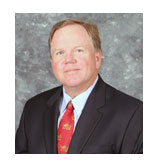 James Salter
founded Atlantic Engineering in December 1995. Prior to that, he served
for seven years as the general manager of Monroe Utilities Network, a
municipal utility that owned and operated a broadband
telecommunications system. In addition to providing electricity,
natural gas, water, and wastewater services, the Monroe Utilities
Network has thirty years experience in broadband communications. In the
field of telecommunications, Mr. Salter has served in the role of
operator, consultant, designer, and contractor. Mr. Salter currently
serves as the Chairman of the Board of Atlantic Engineering Group and
Chief Strategy Officer.
James Salter
founded Atlantic Engineering in December 1995. Prior to that, he served
for seven years as the general manager of Monroe Utilities Network, a
municipal utility that owned and operated a broadband
telecommunications system. In addition to providing electricity,
natural gas, water, and wastewater services, the Monroe Utilities
Network has thirty years experience in broadband communications. In the
field of telecommunications, Mr. Salter has served in the role of
operator, consultant, designer, and contractor. Mr. Salter currently
serves as the Chairman of the Board of Atlantic Engineering Group and
Chief Strategy Officer.
 Chris Savage is one of the
nation’s leading legal practitioners on the Telecommunications Act of
1996. Shortly after its passage, he successfully negotiated the
nation’s first interconnection agreement between a cable operator and
an RBOC. Since then, Savage has represented competing
telecommunications providers (including firms using wired and wireless
technologies) in state and federal regulatory matters, negotiating
interconnection agreements, universal service, pricing, tariffing, and
other matters, as well as representing various Internet-related
entities in regulatory matters and issues relating to Web hosting,
Internet addressing, and domain names. He is a partner in the
Washington DC office of Davis Wright
Tremaine LLP.
Chris Savage is one of the
nation’s leading legal practitioners on the Telecommunications Act of
1996. Shortly after its passage, he successfully negotiated the
nation’s first interconnection agreement between a cable operator and
an RBOC. Since then, Savage has represented competing
telecommunications providers (including firms using wired and wireless
technologies) in state and federal regulatory matters, negotiating
interconnection agreements, universal service, pricing, tariffing, and
other matters, as well as representing various Internet-related
entities in regulatory matters and issues relating to Web hosting,
Internet addressing, and domain names. He is a partner in the
Washington DC office of Davis Wright
Tremaine LLP.
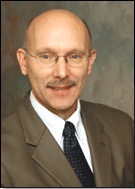 Bill Schrier is Director of
the Department of Information Technology and Chief Technology Officer
of the City of Seattle. Increasingly, people use technology –
telephones, computers, e-mail, the world-wide-web, the Internet – to
contact their government for service. Elected officials and City
departments use the tools of technology – radios, telephones,
computers, software applications, the Web, television– to deliver
service to residents, and also to inform and involve constituents in
the matters of government. The Chief Technology Officer and Department
of Information Technology make sure these technology tools are
up-to-date, efficient and effective in the business of government –
thereby making a difference in the lives of the people of Seattle.
Bill Schrier is Director of
the Department of Information Technology and Chief Technology Officer
of the City of Seattle. Increasingly, people use technology –
telephones, computers, e-mail, the world-wide-web, the Internet – to
contact their government for service. Elected officials and City
departments use the tools of technology – radios, telephones,
computers, software applications, the Web, television– to deliver
service to residents, and also to inform and involve constituents in
the matters of government. The Chief Technology Officer and Department
of Information Technology make sure these technology tools are
up-to-date, efficient and effective in the business of government –
thereby making a difference in the lives of the people of Seattle.
Bill is fully geek. For example, he has a Facebook page, he’s on LinkedIn, and has a blog called The Chief Seattle Geek. There’s also an audio interview with American City & County’s Lindsay Isaacs at PTI’s 2007 Technology Leadership Conference about the city’s multi-million-dollar plan to connect every home and business with fiber optic cable. (Note: first 33 secs is a commercial.)
 Derek Slater is a
Policy Analyst on Google’s public policy team. He focuses principally
on telecom policy and copyright law in the U.S. and abroad. In
November, he and Professor Tim Wu published “Homes
With Tails,” a paper exploring the deployment of customer-owned,
last-mile broadband connections.
Derek Slater is a
Policy Analyst on Google’s public policy team. He focuses principally
on telecom policy and copyright law in the U.S. and abroad. In
November, he and Professor Tim Wu published “Homes
With Tails,” a paper exploring the deployment of customer-owned,
last-mile broadband connections.
Prior to joining Google in September 2007, he was the Electronic Frontier Foundation’s Activism Coordinator. Derek joined EFF’s staff after graduating in January 2006 from Harvard College with a B.A. cum laude in Government. He was also a researcher at Harvard Law School’s Berkman Center for Internet and Society, becoming the first undergraduate to be named a student fellow and contributing to several papers on copyright law and digital media. Derek’s work has been discussed in publications including the Washington Post, News.com, and the Boston Globe.
You can find Homes with Tails (summary, pdf paper)at the New America Foundation’s site. There’s also a video panel discussion (1 hr 37 min) about it.
 Eva Sollberger produces
editorial and advertising video for the Seven Days website. Her weekly Stuck in Vermont vlog
profiles local artists and oddballs. Prior to joining Seven Days, she
worked in the film industry for more than 10 years, producing visual
effects on big-budget pictures, staffing the San Francisco
International and Sundance film festivals, and projecting 35mm films at
art houses.
Eva Sollberger produces
editorial and advertising video for the Seven Days website. Her weekly Stuck in Vermont vlog
profiles local artists and oddballs. Prior to joining Seven Days, she
worked in the film industry for more than 10 years, producing visual
effects on big-budget pictures, staffing the San Francisco
International and Sundance film festivals, and projecting 35mm films at
art houses.
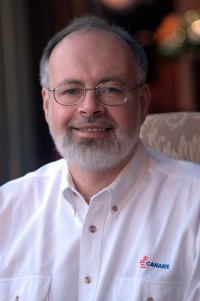 Bill St. Arnaud is
Director of Network Projects for CANARIE Inc., an
industry government consortium to promote and develop information
highway technologies in Canada. At CANARIE St. Arnaud has been
responsible for the coordination and implementation of Canada’s next
generation Internet initiative called CA*net II. More recently he is
coordinating the CANARIE initiative to build the world’s first national
optical Internet network as announced in the February 1998 Budget.
Previously St. Arnaud was the President and founder of a network and
software engineering firm called TSA ProForma Inc., a LAN/WAN software
company that developed wide area network client/server systems for use
primarily in the financial and information business fields in the Far
East and the United States. In 1989 TSA was sold to business interests
in Hong Kong and Toronto.
Bill St. Arnaud is
Director of Network Projects for CANARIE Inc., an
industry government consortium to promote and develop information
highway technologies in Canada. At CANARIE St. Arnaud has been
responsible for the coordination and implementation of Canada’s next
generation Internet initiative called CA*net II. More recently he is
coordinating the CANARIE initiative to build the world’s first national
optical Internet network as announced in the February 1998 Budget.
Previously St. Arnaud was the President and founder of a network and
software engineering firm called TSA ProForma Inc., a LAN/WAN software
company that developed wide area network client/server systems for use
primarily in the financial and information business fields in the Far
East and the United States. In 1989 TSA was sold to business interests
in Hong Kong and Toronto.
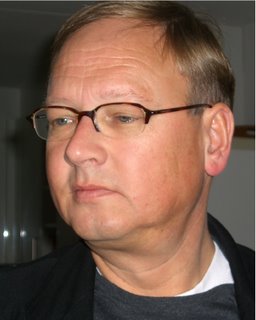 Dirk van der Woude
is the program manager of the municipal broadband policy of Amsterdam.
The city recognizes the necessity of an open and future proof broad
network as an essential precondition for a sustainable and competitive
economy and society. In the broadband program services were developed
and experimented with. As the municipality found the market failing to
build the necessary network it brought about a commercial company, GNA,
that found commercial partners to co-invest. GNA now rolls out a fiber
to the home network, point to point. In December 2008 the Dutch
Regulators elevated the Amsterdam approach to become the national
policy. In February 2009 it was announced that incumbent KPN joins
Amsterdam to roll out of open point to point fiber. On March 4, 2009
the Dutch Trade Minister called upon all Dutch municipalities to follow
Amsterdam’s example to co-invest in the roll out out of open fiber
networks.
Dirk van der Woude
is the program manager of the municipal broadband policy of Amsterdam.
The city recognizes the necessity of an open and future proof broad
network as an essential precondition for a sustainable and competitive
economy and society. In the broadband program services were developed
and experimented with. As the municipality found the market failing to
build the necessary network it brought about a commercial company, GNA,
that found commercial partners to co-invest. GNA now rolls out a fiber
to the home network, point to point. In December 2008 the Dutch
Regulators elevated the Amsterdam approach to become the national
policy. In February 2009 it was announced that incumbent KPN joins
Amsterdam to roll out of open point to point fiber. On March 4, 2009
the Dutch Trade Minister called upon all Dutch municipalities to follow
Amsterdam’s example to co-invest in the roll out out of open fiber
networks.
In separate projects Dirk is closely involved in having all Amsterdam schools as well as many theatres connected with 1 Gigabit symmetric connections by Summer 2009. In 2007 he was awarded the prestigious national Vosko Award for Perseverant Innovation. Dirk (1955) studied management sciences and sociology in Amsterdam and Utrecht.
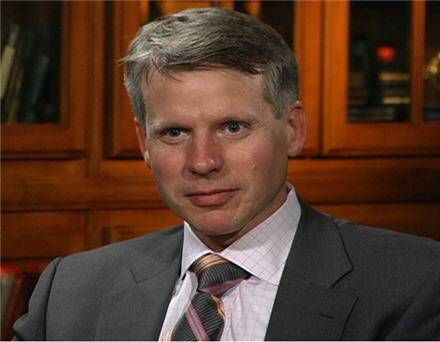 Chris Vein is San
Francisco’s Chief Information Officer and Executive Director, Department of
Telecommunications and Information Services. In these capacities,
he provides policy guidance on the City’s technology vision, provides
telecommunications and information technology services to city
departments, as well as guiding technology and cable television
franchise policies. Prior to his employment in San Francisco, Vein was
an AVP for Operations at Science
Applications International Corporation (SAIC). He began his career
in Washington, DC working in the Executive Office of the President. As
a high ranking non-political appointment, Vein was Director of
Administrative and Financial Services for the White House, serving the
Clinton, Bush, and Reagan Presidencies.
Chris Vein is San
Francisco’s Chief Information Officer and Executive Director, Department of
Telecommunications and Information Services. In these capacities,
he provides policy guidance on the City’s technology vision, provides
telecommunications and information technology services to city
departments, as well as guiding technology and cable television
franchise policies. Prior to his employment in San Francisco, Vein was
an AVP for Operations at Science
Applications International Corporation (SAIC). He began his career
in Washington, DC working in the Executive Office of the President. As
a high ranking non-political appointment, Vein was Director of
Administrative and Financial Services for the White House, serving the
Clinton, Bush, and Reagan Presidencies.
Here’s a little about Chris in a video interview from ZDNet’s CIO sessions (Mar 2007).
 Esme Vos is the founder
of MuniWireless.com, the portal for information about municipal
wireless broadband projects around the world and a partner with
Isen.com to produce F2C:Freedom to Connect. Vos began Muniwireless in
2003 as a blog and turned it into a small publishing operating with
conferences, seminars and webinars. Vos is an intellectual property
lawyer who has advised European and US technology companies. She was
the Chief Legal Officer of Spray Network, a pan-European portal and
Baan Business Systems, a global enterprise resource planning (ERP)
software vendor and VAR. Vos is based in Amsterdam.
Esme Vos is the founder
of MuniWireless.com, the portal for information about municipal
wireless broadband projects around the world and a partner with
Isen.com to produce F2C:Freedom to Connect. Vos began Muniwireless in
2003 as a blog and turned it into a small publishing operating with
conferences, seminars and webinars. Vos is an intellectual property
lawyer who has advised European and US technology companies. She was
the Chief Legal Officer of Spray Network, a pan-European portal and
Baan Business Systems, a global enterprise resource planning (ERP)
software vendor and VAR. Vos is based in Amsterdam.
 Herman Wagter is the
CEO of GNA (Citynet Amsterdam). He has been involved in Citynet from
its inception, as Program Manager. He holds a MSc. Degree and has 30
years of experience in various senior management positions in
international companies, ranging from high-tech to services. He has an
passion for investigating the drivers of the change we are experiencing
(the end of cheap oil, hyperconnectivity, lean thinking) and writing
about them in his blog www.dadamotive.com.
Herman Wagter is the
CEO of GNA (Citynet Amsterdam). He has been involved in Citynet from
its inception, as Program Manager. He holds a MSc. Degree and has 30
years of experience in various senior management positions in
international companies, ranging from high-tech to services. He has an
passion for investigating the drivers of the change we are experiencing
(the end of cheap oil, hyperconnectivity, lean thinking) and writing
about them in his blog www.dadamotive.com.
 Kevin Werbach is a leading expert
on the business, policy, and social implications of emerging Internet
and communications technologies. Werbach is an Assistant Professor of
Legal Studies at The Wharton School, University of Pennsylvania. He is
also the founder of the Supernova Group, a technology analysis and
consulting firm. He advises companies and writes about emerging trends
in communications and information technology. He organizes Supernova, a
leading executive technology conference. Werbach is also a former
editor of Release 1.0.
Kevin Werbach is a leading expert
on the business, policy, and social implications of emerging Internet
and communications technologies. Werbach is an Assistant Professor of
Legal Studies at The Wharton School, University of Pennsylvania. He is
also the founder of the Supernova Group, a technology analysis and
consulting firm. He advises companies and writes about emerging trends
in communications and information technology. He organizes Supernova, a
leading executive technology conference. Werbach is also a former
editor of Release 1.0.
More recently, Kevin Werbach was co-leader of President Obama’s FCC Transition Team. He authored the 1997 FCC report entitled, “Digital Tornado.” Kevin will discuss his experiences on the Obama FCC Transition and the prospects for the new FCC.
 Timber Wolf is Market Stability Officer
at Cullem, Eaton & Thrive, and Spokeswolf for the Creative
Destruction Coalition, a loose assemblage of predators dedicated to
culling lame businesses and older slower network technologies from the
herd. Mr. Wolf denies all association with responsible regulatory
agencies.
Timber Wolf is Market Stability Officer
at Cullem, Eaton & Thrive, and Spokeswolf for the Creative
Destruction Coalition, a loose assemblage of predators dedicated to
culling lame businesses and older slower network technologies from the
herd. Mr. Wolf denies all association with responsible regulatory
agencies.






